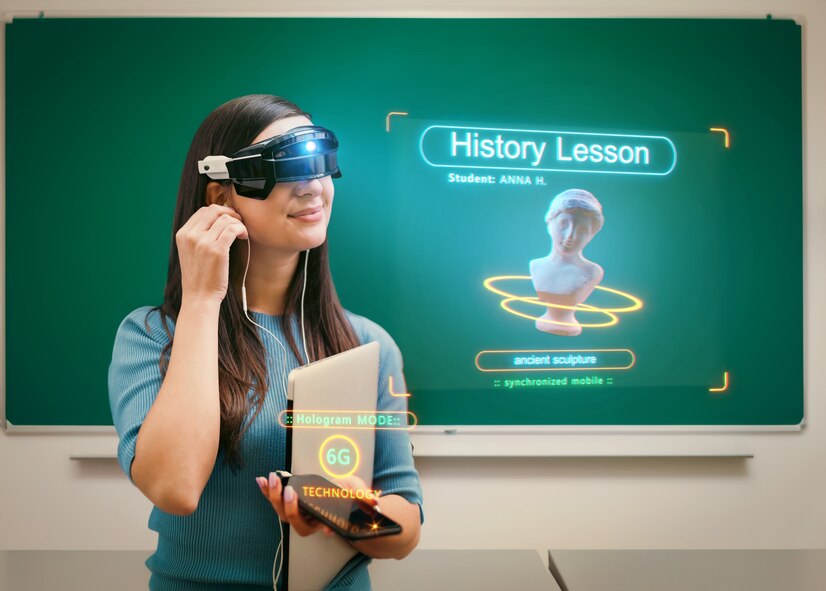The Impact Of Ai In Education

Introduction
Artificial Intelligence (AI) is transforming various sectors, and education is no exception. The integration of AI in education is reshaping how students learn and teachers instruct. At the forefront of this transformation are adaptive learning technologies and data-driven education, which revolutionize traditional teaching methods and provide personalized learning experiences. This article explores the significant impact of AI on education and how it enhances both teaching and learning.
1. Value of AI in Education
Benefits of AI in Education
AI offers numerous benefits that enhance the educational experience. From automating administrative tasks to providing personalized feedback, AI streamlines processes, allowing educators to focus more on teaching. Key advantages include:
- Enhanced Engagement: AI tools create interactive learning environments that keep students engaged.
- Efficient Assessment: Automated grading systems provide instant feedback, helping students understand their mistakes promptly.
- Resource Optimization: AI helps schools allocate resources more effectively, ensuring every student receives the support they need.
Personalized Learning with AI
One of the most significant applications of AI in education is through adaptive learning technologies. These technologies analyze individual student performance and adapt the curriculum accordingly. As a result:
- Students receive customized learning paths tailored to their strengths and weaknesses.
- Teachers can monitor progress in real-time and adjust their teaching strategies to better meet the needs of each student.
Impact of AI on Student Learning
The impact of AI on student learning is profound. Research indicates that students using AI-enhanced tools show improved academic performance and higher engagement levels. AI-driven platforms can:
- Identify areas where students struggle and provide targeted resources to address those gaps.
- Foster a deeper understanding of subjects through personalized learning experiences.
2. Options for Implementation
AI Tools for Teachers
Educators can leverage various AI tools to improve their teaching practices. Some popular tools include:
- Grading Software: Automates the grading process, allowing teachers to spend more time on instruction.
- Learning Management Systems (LMS): Incorporate AI to provide insights into student engagement and performance.
AI-Driven Educational Platforms
Several platforms utilize AI to facilitate learning, providing valuable resources for both students and teachers:
- Khan Academy: Offers personalized learning experiences based on student performance.
- Duolingo: Uses AI to adapt language lessons to the learner’s pace and proficiency.
Intelligent Tutoring Systems
Intelligent tutoring systems provide personalized assistance to students. These systems can:
- Offer real-time feedback and hints, helping students solve complex problems.
- Adapt lessons based on individual learning styles, enhancing the overall learning experience.
3. Audience Considerations
Future of Education Technology

The future of education technology is bright, with AI playing a crucial role. As machine learning and data analytics evolve, we can expect:
- More sophisticated educational tools that can predict student outcomes.
- Enhanced virtual classrooms that provide immersive learning experiences.
Challenges of AI in Education
Despite the benefits, challenges exist in implementing AI in education, including:
- Ethical Considerations: Ensuring student data privacy while utilizing AI tools.
- Equity: Addressing the digital divide to ensure all students have access to AI-enhanced educational resources.
Data-Driven Education
Data-driven education is essential for informed decision-making in schools. With AI's help, educators can:
- Analyze student performance data to refine teaching strategies.
- Develop targeted interventions that support at-risk students.
4. Innovations in Education
EdTech Innovations
Recent technological advancements in education, influenced by AI, include:
- Virtual Reality (VR) tools that provide immersive learning experiences.
- Augmented Reality (AR) applications that enhance traditional learning methods.
Robotics in Education
Robotics is increasingly integrated into educational settings, offering hands-on learning opportunities. Students can:
- Engage in coding and engineering projects, fostering critical STEM skills.
- Work with robotic systems that simulate real-world challenges.
Gamification in Learning
Gamification techniques, supported by AI, significantly increase student motivation and engagement. For example:
- Educational games that adapt to student progress help maintain interest while reinforcing key concepts.
- Leaderboards and rewards motivate students to achieve their learning goals.
5. Research and Development
Educational Data Mining
Educational data mining is a growing field that uses AI to analyze student performance data. This research helps educators:
- Identify trends and patterns in learning behaviors.
- Tailor instructional methods based on empirical evidence.
Learning Analytics
Learning analytics plays a vital role in assessing and enhancing educational effectiveness. By leveraging AI, educators can:
- Monitor student engagement levels and adjust course materials accordingly.
- Predict student performance to implement timely interventions.
Conclusion

In conclusion, the impact of AI in education is transformative, offering unprecedented opportunities for personalized learning and data-driven decision-making. By embracing technologies such as adaptive learning platforms and intelligent tutoring systems, educators can significantly enhance educational outcomes. As we continue to explore the potential of AI in education, it is crucial to address the challenges and ethical considerations to ensure every student benefits from these advancements. The future of learning is bright, and AI is at the forefront of this exciting journey.